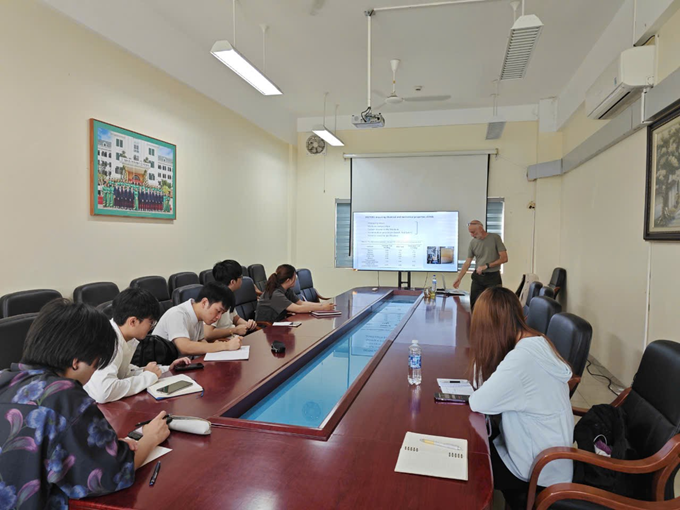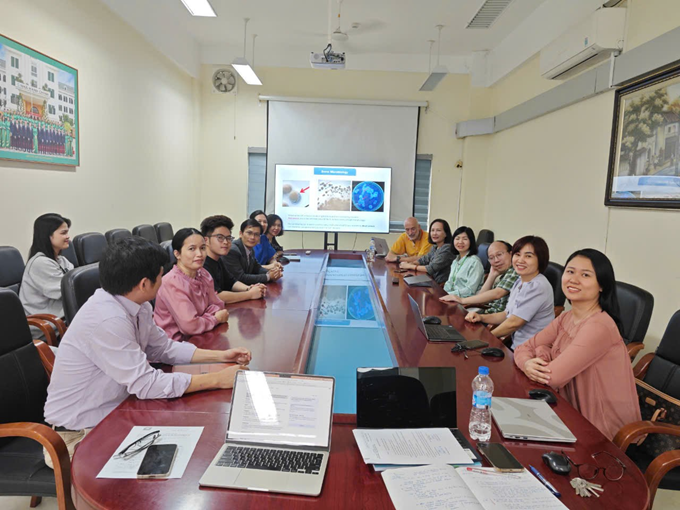Erasmus+ is the EU Programme in the fields of education, training, youth and sport for the 2021-2027 period. Education, training, youth and sport are key areas that support citizens in their personal and professional development. High quality, inclusive education and training, as well as informal and non-formal learning, ultimately equip young people and participants of all ages with the qualifications and skills needed for their meaningful participation in democratic society, intercultural understanding and the successful transition to the labour market. Building on the success of the programme in the 2014-2020 period, Erasmus+ strengthens its efforts to increase the number of opportunities offered to even more participants and to a wider range of organisations, focusing on the qualitative impact of the Programme and contributing to more inclusive and cohesive, greener and digitally fit societies.
The programme's objective is pursued through three key actions:
· Key action 1: Learning mobility of individuals
· Key action 2: Cooperation among organisations and institutions
· Key action 3: Support to policy development and cooperation
The Key Action 1 - Mobility of Individuals - supports Mobility of learners and staff: Opportunities for pupils, students, adult learners, trainees and young people, as well as for professors, teachers, trainers, educators, youth workers, sport staff, staff of education institutions and civil society organisations to undertake a learning and/or professional experience in another country.
To receive funding from the Erasmus Program, there must be a collaboration between a European university and a university from a developing country. In 2022, the Vietnam National University of Agriculture (VNUA) and the University of Camerino, Italy (UNICAM) signed a cooperation agreement to receive support from the Erasmus KA171 Program for the period 2023 – 2025 with project code 2022-1-IT02-KA171-HED-000073309. Within the framework of this project, lecturers and graduate students in Food Technology – Biotechnology from both universities have the opportunity to exchange, learn, and collaborate.
About the University of Camerino, it is one of the most interesting and innovative Italian institutions, it is, without doubt, the merit of the strength and momentum attributed to it by its rich history.For almost 700 years, Camerino and its university have been expressing a single essence, capable of evolving and facing the challenges of time, always remaining faithful to itself, to its values, to its long tradition. With a solid scientific-cultural tradition, the University of Camerino now has five University Schools: Architecture and Design, Biosciences and Veterinary Medicine, Pharmaceutical and Health Products, Law, Science and Technology. As a university of European ambitions, Camerino has always been committed to developing a differentiated and cutting-edge educational offer; the highly innovative Master’s programmes, the delocalisation of institutional teaching activities through the adoption of the most modern remote and online technologies, and the average first employment waiting time, which for the majority of UNICAM graduates is less than a year, testify to this fact.The university has 4 campuses in Camerino, Ascoli Piceno, Matelica, and San Benedetto del Tronto. The bachelor's, master's, and doctoral programs are taught in English. Regarding facilities, the infrastructure and equipment are continuously developed, including a library, a large number of research laboratories, modern sports centers, fully serviced dormitories, and student facilities. The excellent faculty-to-student ratio (1 faculty member for every 25 students) is another fundamental factor ensuring the quality of education at UNICAM.
With the student exchange program, at the beginning of 2024, two graduate students from the Faculty of Food Science and Technology and Biotechnology had a semester exchange at UNICAM. The students not only accumulate credits through their studies but also have the opportunity to participate in scientific research activities with the professors here. This is a valuable opportunity for students to acquire additional research skills in laboratories that meet European quality standards. In 2025, one more graduate student from the Faculty of Food Technology went to UNICAM for an exchange semester. According to the plan, in May 2025, VNUA will welcome one UNICAM Ph.D student to conduct research in the field of applied biotechnology.
Regarding the faculty exchange activities, in November 2024, Professor Roberto Spurio, a lecturer at the School of Bioscience and Veterinary Medicines, conducted a teaching exchange program and gave scientific seminar presentations at VNUA. Here, the professor participated in teaching high-quality undergraduate students in Biotechnology, as well as graduate students in Food Technology, and simultaneously shared many research topics with faculty and students at the Faculty of Food Science and Technology. The lectures and topics shared by the professor were extremely useful, highly informative, and attracted the interest of both lecturers and students. Some typical topics include:
1. Introduction of UNICAM and School of BioScience and Veterinary Medicine;
2. Introduction of Biotechnology; an historical overview. Life and biological sciences and technologies are among the key drivers and enablers for bio-based innovations;
3. Use of barley and Agrobacterium tumefacens for production of recombinant proteins (growth factors and key elements of cultivated meat;
4. Production of Bacterial Cellulose;
5. Dedicated Bio-based chemicals (extremolytes). Production of Itaconic Acid;
6. Biodegradable plastics produced by microorganisms: PLA; PHB;
7. Staphylococcus aureus: Concepts of Microbiology, Proof of Concept in Production of Novel Antibacterial Compounds;
8. The role of bacteria in the industrial (large-scale) production of enzymes..
During his visit to the university, the professor also toured the laboratories of the Faculty of Food Technology, Biotechnology, and Veterinary Medicine at the Center for Excellence and Innovation, VNUA. Professor Spurio had in-depth discussions about the research directions in his laborator. The activities of exchanging staff and students between the two universities will create opportunities to enhance the capacity of lecturers and students, while also promoting cooperation in training and scientific research in the near future.
    |
 |
| Professor Roberto Spurio gives lectures to the high-quality class students of the Faculty of Biotechnology |
    |
 |
| Professor Roberto Spurio presents a seminar at the Faculty of Food Science and Technology |
Faculty of Food Science and Technology